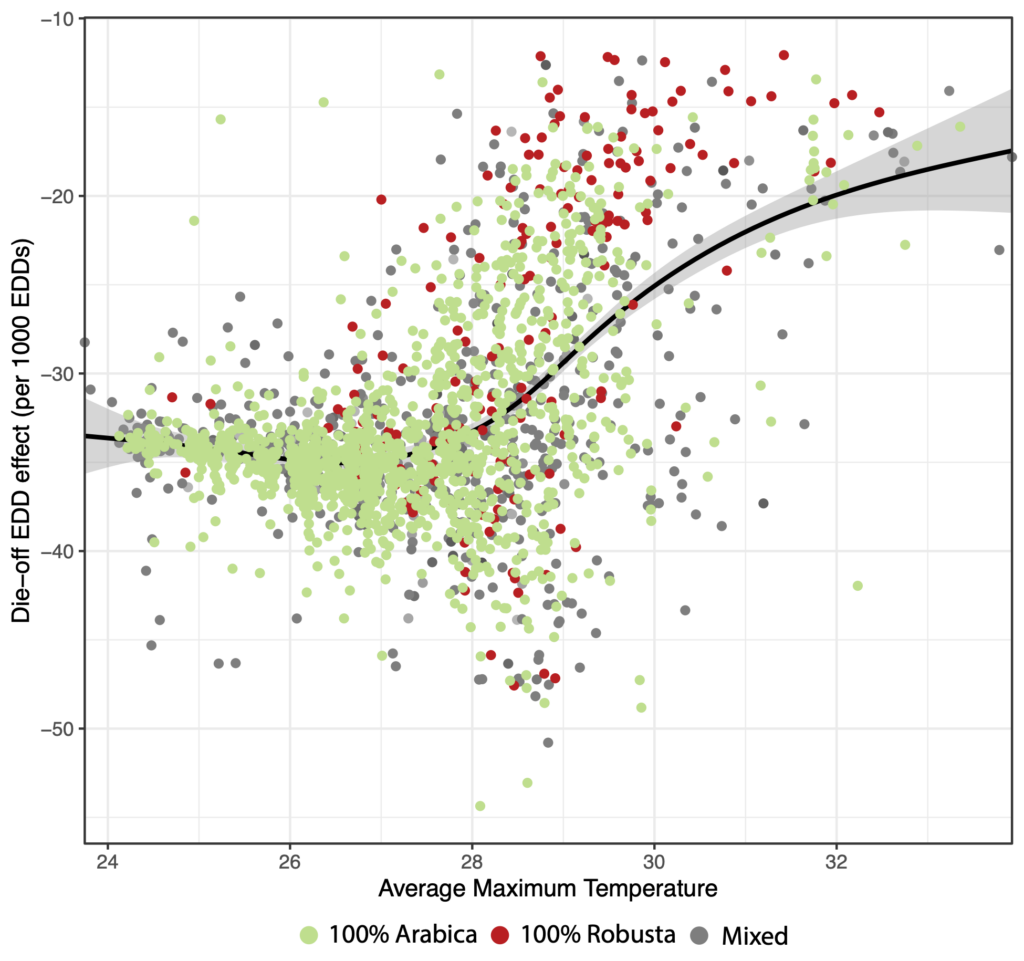The threat of climate change to agricultural production is significant, but for perennial crops in developing countries, the risks have new complications. In my latest study, “Confounding Adaptation in Perennial Climate Damages: A Unified Statistical Approach for Brazilian Coffee,” I uncover the alarming, yet previously unestimated risks affecting the Brazilian coffee industry.

Misreported perennial yields and crop management decisions can significantly impact our understanding of these risks. The study reveals that extreme temperatures do reduce yields – but they also shrink the reported harvest area due to plant death and farmers’ selective harvesting. In other words, the actual damage from extreme temperatures on coffee production is twice as severe as effects recorded on reported yields.
In the study, I’ve developed a framework that merges perennial supply and statistical yield literature to distinguish the effects of management decisions. The process unearthed a direct impact of temperatures on biophysical yields and a plant death effect. Together they support a detailed understanding of how prices, weather, and farmer adaptations interact in the realm of perennial crops – particularly crucial in developing economies.
Dive in by reading the full paper here.

0 responses so far ↓
There are no comments yet...Kick things off by filling out the form below.